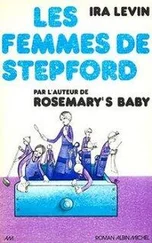Haas wrote on a memo pad, copying from a typed form in the folder. “May I ask,” he said, “how you come to be interested in this? Döring wasn’t a ‘war criminal,’ was he?”
Liebermann looked at Haas busily writing, and after a moment said, “No, as far as I know he wasn’t a war criminal. He may have had contact with one. I’m checking a rumor. Probably there’s nothing in it.”
To the bartender in the Lorelei-Bar he said, “I’m looking into it for a friend of his, who thinks the collapse may not have been an accident.”
The bartender’s eyes widened. “You don’t say! You mean someone purposely…? Oh my.” He was a small bald man with a mustache with waxed tips. A yellow smile-face button smiled on his red lapel. He didn’t ask Liebermann’s name and Liebermann didn’t offer it.
“Was he a regular customer?”
The bartender frowned and stroked his mustache. “Mmm, so-so. Not every night, but once or twice a week. An afternoon sometimes.”
“I understand he left here alone that night.”
“That’s right.”
“Was he with anyone before he left?”
“He was alone, right where you are now. One seat over maybe. And he left in a hurry.”
“Oh?”
“He had change coming, eight and a half marks on a one-fifty bill, and he didn’t wait for it. He was a good tipper, but not like that. I meant to give it to him the next time he came in.”
“Did he say anything to you while he was drinking?”
The bartender shook his head. “It wasn’t a night I could stand around and talk. They had a dance at the business school”—he pointed over Liebermann’s shoulder—“and we were packed solid from eight o’clock on.”
“He was waiting for someone,” a man at the end of the bar said, a round-faced old man in a derby hat and a shabby overcoat buttoned up tightly to the collar. “He kept looking at the door, watching for someone to come in.”
Liebermann said, “You knew Herr Döring?”
“Very well,” the old man said. “I went to the funeral. Such a small turn-out! I was surprised.” To the bartender he said, “You know who wasn’t there? Ochsenwalder. That surprised me. What did he have to do that was so important?” He picked up his stein with both hands and drank from it.
“Excuse me,” the bartender said to Liebermann, and went away toward the other end of the bar, where a few men sat.
Liebermann got up, and with his tomato juice and his briefcase, went over and sat down near the old man, around the bar’s corner from him.
“Usually he sat here with us,” the old man said—he wiped his mouth with the back of his hand—“but that night he sat alone, in the middle there, and kept watching the door. Waiting for someone, looking at the time. Apfel said it was probably the salesman from the night before. He was some talker, Döring. To be honest, we weren’t sorry he was there not here. But he could have come over and said hello, couldn’t he? Now don’t get me wrong; we liked him, and not just because he picked up the tab sometimes. But he told the same stories over and over again. Good stories, but how many times can you listen? Over and over, the same stories; how he’d been smarter than different people.”
“He was telling them to a salesman the night before?” Liebermann asked.
The old man nodded. “In medicine. First he was talking to all of us, asking about the town, and then it was him and Döring, Döring talking and him laughing. The first time you heard them they were good stories.”
“That’s right, I forgot,” the bartender said, back with them. “Döring was here the night before the accident. That was unusual for him, two nights in a row.”
“You know how old his wife is?” the old man asked. “I thought it was a daughter, but it was the wife, the widow.”
Liebermann said to the bartender, “Do you remember the salesman he was talking to?”
“I don’t know if he was a salesman,” the bartender said, “but I remember. A glass eye, and a way of snapping his fingers that annoyed the hell out of me; as if I should have been there ten minutes ago.”
“How old was he?”
The bartender stroked his mustache and sharpened a tip of it. “In his fifties, I’d say,” he said. “Fifty-five maybe.” He looked at the old man. “Wouldn’t you say that?”
The old man nodded. “Around there.”
Liebermann, unstrapping his briefcase on his lap, said, “I have some pictures. They were taken a long time ago, but would you look at them and tell me if one of the men in them might have been the salesman?”
“Glad to,” the bartender said, coming closer. The old man shifted around.
Getting the photos out, Liebermann said to the old man, “Did he give his name?”
“I don’t think so. If he did I don’t remember it. But I’m good with faces.”
Liebermann moved his tomato juice aside, and turning the photos around, put them on the bar and separated the three of them. He pushed them closer to the old man and the bartender.
They bent over the glossy photos, the old man putting a hand to his derby.
“Add thirty years,” Liebermann told them, watching. “Thirty-five.”
They raised their heads, looking at him warily, resentfully. The old man turned away. “I don’t know,” he said. He picked up his stein.
The bartender, looking at Liebermann, said, “You can’t show us pictures of…young soldiers and expect us to recognize a fifty-five-year-old man we saw over a month ago.”
Liebermann said, “Three weeks ago.”
“Still.”
The old man drank.
Liebermann said to them, “These men are criminals. They’re wanted by your government.”
“ Our government,” the old man said, setting his stein down onto its wet print. “Not yours.”
“That’s true,” Liebermann said. “I’m Austrian.”
The bartender went away. The round-faced old man watched him go.
Liebermann, putting spread hands on the photos, leaned forward and said, “This salesman may have killed your friend Döring.”
The old man looked at his stein, his lips pursed. He turned the stein’s handle around toward him.
Liebermann looked bitterly at him, and gathered the photos and put them back in his briefcase. He closed the briefcase, strapped it, and stood up.
The bartender, coming back, said, “Two marks.”
Liebermann put a five-mark note on the bar and said, “Some coins for the phone, please.”
He went into the booth and dialed Frau Döring’s number. The line was busy.
He tried Döring’s sister, in Oberhausen. No answer.
He stood crated in the phone booth with his briefcase between his feet, tugging at his ear and thinking of what to say to Frau Döring. She might very well be hostile to Yakov Liebermann, Nazi-hunter; and even if she weren’t, after her sister-in-law’s accusations she probably wouldn’t want to discuss Döring and his death with any stranger. But what could he tell her except the truth? How else gain a meeting with her? It struck him that Klaus von Palmen, in Pforzheim, might be getting better results than he. That would be all he’d need, to be outdone by von Palmen.
He tried Frau Döring again, following Chief Inspector Haas’s neatly penned digits. The phone at the other end rang.
“Yes?” A woman; quick, annoyed.
“Is this Frau Klara Döring?”
“Yes, who’s this?”
“My name is Yakov Liebermann. From Vienna.”
Silence. “Yakov Liebermann? The man who…finds the Nazis?”—surprised and puzzled, but not hostile.
“Looks for them,” Liebermann said, “only sometimes finds. I’m here in Gladbeck, Frau Döring, and I wonder if you’d be kind enough to let me have a little of your time, only half an hour or so. I’d like to talk with you about your late husband. I think he may have been involved—entirely innocently and without knowing about it—in the affairs of certain persons I’m interested in. May I come talk with you? Whenever it’s convenient for you?”
Читать дальше











